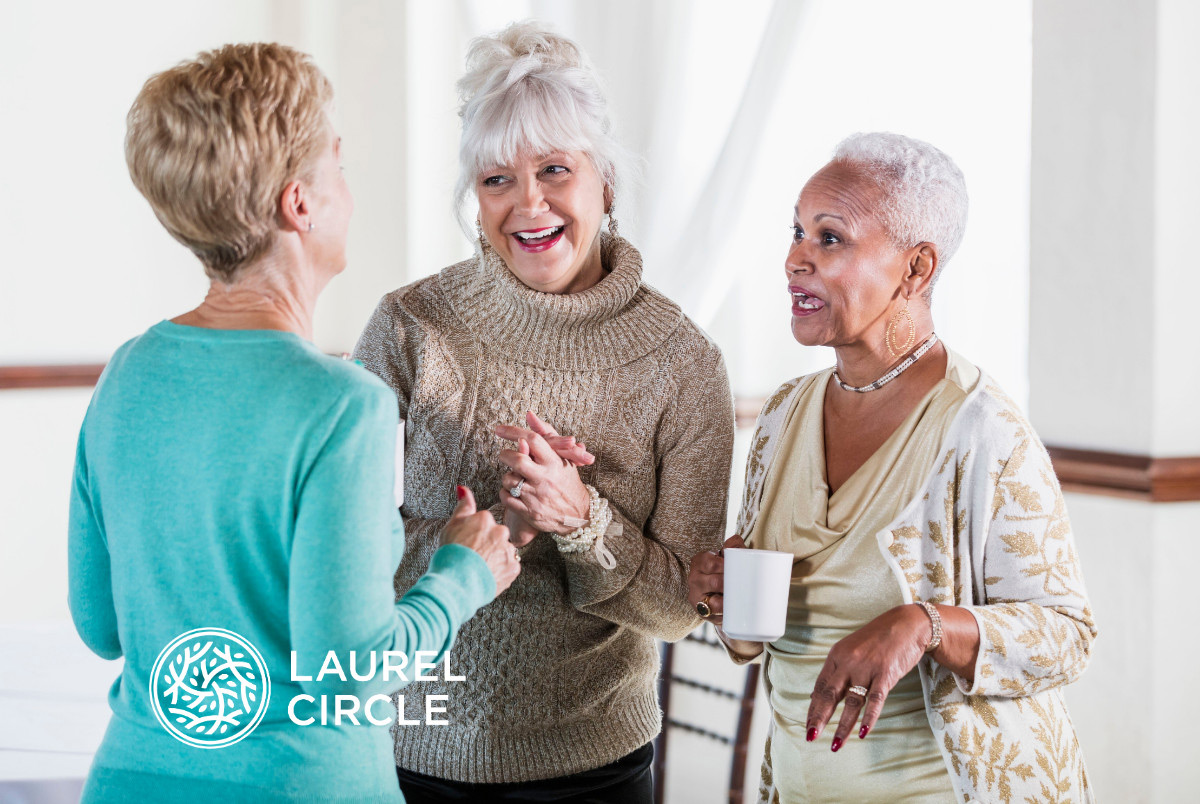The Importance of Friendship for Healthy Senior Aging

We’ve all been told that the formula for glowing health is to exercise regularly and eat a healthy diet. But if you don’t connect with other people, you’re missing out on what may be the most important factor for improving your quality of life. And while it can be harder to make friends after you’ve retired and left the workforce, it’s well worth the effort. Here are some of the ways friendships in late adulthood can boost your happiness and improve your health.
Friendships Keep Your Brain Sharp
Strong friendships may be key to protecting the brain in later life. Researchers at Northwestern University (NU) found that people who maintain close friendships during old age have a stronger memory and show slower cognitive decline than those who live quieter, less social lives. In another NU study, adults 80 and older who’d maintained long-standing friendships had memories that rivaled those of people 30 years younger. Yet another study at the Rush Alzheimer’s Disease Center in Chicago looked at how social activity affected cognitive decline in over 1,100 seniors. Over a 12-year period, the rate of cognitive decline was 70% less in people with frequent social contact.
Friendships Motivate You to Adopt Healthy Habits
Friends care about each other’s well-being, so you don’t want to disappoint them. It’s why you show up for that fitness class when you’re entertaining thoughts of sleeping in and lingering over a second cup of coffee with the news. Friends help you find the determination to push a little harder to reach your personal best. Friends also remind you what needs to be done to stay healthy, like getting your hearing or vision checked if they notice a change you’ve been ignoring. Just knowing your friends have your back can make you feel better.
Friendships Can Help You Live Longer
Numerous studies suggest that if you want to live longer, you need to make some friends. In a review of 148 studies on social links and mortality that included more than 300,000 participants, researchers found the effect of social ties on life span is twice as strong as that of exercising and equal to that of quitting smoking. That’s not to say you should play more poker and do less exercise. Rather, you may want to join a group fitness class where you can make new friends who’ll motivate you to keep showing up — whether it’s at the card table or the gym.
Friendships Fend Off Loneliness and Depression
Social isolation is bad for your health. It increases the risk of heart disease and stroke. And it accelerates cognitive decline. The lack of social relationships is also as much a risk factor for death as smoking or obesity. So it’s important to take steps to connect with others. Take a class. Join a book club or sewing group. Volunteer. Set up a regular coffee date with a friend. Or have some fun with a regular bridge or poker night.
Friendships Make You Happy
At the risk of stating the obvious, friends enrich our lives in profoundly meaningful ways. They lift us up when we’re feeling down. They share in our enthusiasm when we have good news. They pull us back from the brink when we’re feeling stressed. And they improve our overall satisfaction with life. It’s no wonder we value our friendships as we age. Friends help us stay healthy and happy — what more could anyone want?
Connect with a Community Where Friendships Thrive
Opportunities for connecting with others and forging new friendships are easy to find at Laurel Circle. There are walking clubs and bridge clubs, guest lectures and lifelong learning classes, writing clubs and art classes, singing and dancing, Wii bowling and happy hour. To learn more, check out the activities calendar on our Wellness page. Or Contact Us — we love making new friends.




